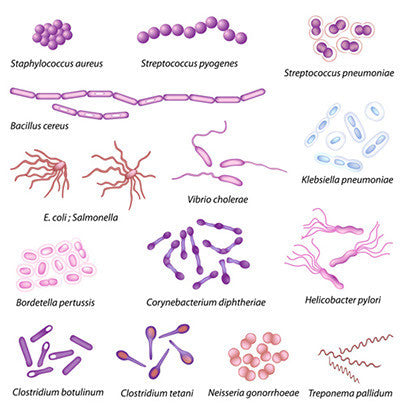Oral Bacteria
 The oral cavity contains a diverse population of bacteria with many wild and interesting organisms living inside it. The human mouth is the most microbiological complex system in our entire body. The human mouth with its diverse niches and ample supply of nutrients is well suited for the unrestricted formation of natural microbial biofilms. The oral microbial community consists of more than 700 different bacterial species including viruses, fungi, protozoa, archaea and bacteria. One milliliter of human saliva from a healthy adult contains approximately 100 million bacterial cells! The mouth contains both distinct mucosal (lips, cheek, tongue, palate) and, uniquely, non-shedding surfaces (teeth) for microbial colonization.
The oral cavity contains a diverse population of bacteria with many wild and interesting organisms living inside it. The human mouth is the most microbiological complex system in our entire body. The human mouth with its diverse niches and ample supply of nutrients is well suited for the unrestricted formation of natural microbial biofilms. The oral microbial community consists of more than 700 different bacterial species including viruses, fungi, protozoa, archaea and bacteria. One milliliter of human saliva from a healthy adult contains approximately 100 million bacterial cells! The mouth contains both distinct mucosal (lips, cheek, tongue, palate) and, uniquely, non-shedding surfaces (teeth) for microbial colonization.
Oral bacteria are responsible for the two most common diseases of man: dental caries (tooth decay) and periodontal (gum) disease. Although caries and periodontitis are clearly bacterial diseases, they are not infectious diseases in the classical sense because they result from a complex interaction between the bacterial community, host susceptibility, and environmental factors such as diet and smoking. There is always a fight between the good bacteria and bad bacteria inside human mouth. When we neglect our oral hygiene or professional cleaning, it will lead to deposition of bacterial plaque in form of calculus (tartar buildup) that will lead to continuous destruction of periodontal supporting tissues including dental appliances (bridges, orthodontic wires and implants).
